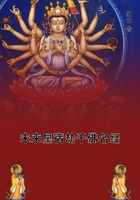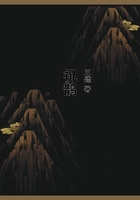In 1865, before the final breach with Turgenieff, he wrote, again to Fet: "I do not like 'Enough'! A personal subjective treatment is never good unless it is full of life and passion; but the subjectivity in this case is full of lifeless suffering.
In the autumn of 1883, after Turgenieff's death, when the family had gone into Moscow for the winter, my father stayed at Yasnaya Polyana alone, with Agafya Mikhailovna, and set earnestly about reading through all Turgenieff's works.
This is what he wrote to my mother at the time:
I am always thinking about Turgenieff. I am intensely fond of him, and sorry for him, and do nothing but read him. I live entirely with him. I shall certainly give a lecture on him, or write it to be read; tell Yuryef.
"Enough"--read it; it is perfectly charming.
Unfortunately, my father's intended lecture on Turgenieff never came off. The Government forbade him to pay this last tribute to his dead friend, with whom he had quarreled all his life only because he could not be indifferent to him.
(To be continued)
REMINISCENCES OF TOLSTOY BY HIS SON, COUNT ILYa TOLSTOY TRANSLATED BY GEORGE CALDERON
AT this point I shall turn back and try to trace the influence which my father had on my upbringing, and I shall recall as well as I can the impressions that he left on my mind in my childhood, and later in the melancholy days of my early manhood, which happened to coincide with the radical change in his whole philosophy of life.
In 1852, tired of life in the Caucasus and remembering his old home at Yasnaya Polyana, he wrote to his aunt, Tatyana Alexandrovna:
After some years, I shall find myself, neither very young nor very old, back at Yasnaya Polyana again: my affairs will all be in order; I shall have no anxieties for the future and no troubles in the present.
You also will be living at Yasnaya. You will be getting a little old, but you will be healthy and vigorous. We shall lead the life we led in the old days; I shall work in the mornings, but we shall meet and see each other almost all day.
We shall dine together in the evening. I shall read you something that interests you. Then we shall talk: I shall tell you about my life in the Caucasus; you will give me reminiscences of my father and mother; you will tell me some of those "terrible stories" to which we used to listen in the old days with frightened eyes and open mouths.
We shall talk about the people that we loved and who are no more.
You will cry, and I, too; but our tears will be refreshing, tranquilizing tears. We shall talk about my brothers, who will visit us from time to time, and about dear Masha, who will also spend several months every year at Yasnaya, which she loves, with all her children.
We shall have no acquaintances; no one will come in to bore us with gossip.
It is a wonderful dream; but that is not all that I let myself dream of.
I shall be married. My wife will be gentle, kind, and affectionate; she will love you as I do; we shall have children who will call you granny; you will live in the big house, in the same room on the top floor where my grandmother lived before.
The whole house will be run on the same lines as it was in my father's time, and we shall begin the same life over again, but with a change of roles.
You will take my grandmother's place, but you will be better still than she was; I shall take my father's place, though I can never hope to be worthy of the honor.
My wife will take my mother's place, and the children ours.
Masha will fill the part of both my aunts, except for their sorrow; and there will even be Gasha there to take the place of Prashovya Ilyinitchna.
The only thing lacking will be some one to take the part you played in the life of our family. We shall never find such a noble and loving heart as yours. There is no one to succeed you.
There will be three new faces that will appear among us from time to time: my brothers, especially one who will often be with us, Nikolenka, who will be an old bachelor, bald, retired, always the same kindly, noble fellow.
Just ten years after this letter, my father married, and almost all his dreams were realized, just as he had wished. Only the big house, with his grandmother's room, was missing, and his brother Nikolenka, with the dirty hands, for he died two years before, in 1860. In his family life my father witnessed a repetition of the life of his parents, and in us children he sought to find a repetition of himself and his brothers. We were brought up as regular gentlefolk, proud of our social position and holding aloof from all the outer world. Everything that was not us was below us, and therefore unworthy of imitation. I knew that my father felt very earnestly about the chastity of young people; I knew how much strength he laid on purity. An early marriage seemed to me the best solution of the difficult question that must harass every thoughtful boy when he attains to man's estate.
Two or three years later, when I was eighteen and we were living in Moscow, I fell in love with a young lady I knew, my present wife, and went almost every Saturday to her father's house.
My father knew, but said nothing. One day when he was going out for a walk I asked if I might go with him. As I very seldom went for walks with him in Moscow, he guessed that I wanted to have a serious talk with him about something, and after walking some distance in silence, evidently feeling that I was shy about it and did not like to break the ice, he suddenly began:
"You seem to go pretty often to the F----s'."
I said that I was very fond of the eldest daughter.
"Oh, do you want to marry her?"
"Yes."
"Is she a good girl? Well, mind you don't make a mistake, and don't be false to her," he said with a curious gentleness and thoughtfulness.
I left him at once and ran back home, delighted, along the Arbat. I was glad that I had told him the truth, and his affectionate and cautious way of taking it strengthened my affection both for him, to whom I was boundlessly grateful for his cordiality, and for her, whom I loved still more warmly from that moment, and to whom I resolved still more fervently never to be untrue.














